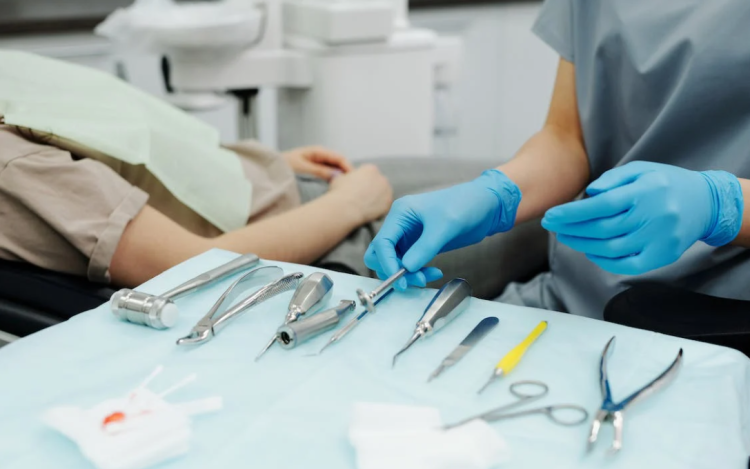Taking care of your teeth is essential for good oral health. However, many people don’t realize that there are certain dos and don’ts when it comes to dental work. Knowing the basics can help you make informed decisions and ensure that you get the best results from any dental work you may need. Let’s take a look at some of the most important dos and don’ts of dental work.
Do Research Your Dentist
When it comes to finding a dentist, it’s important to do your research. Ask family and friends for referrals, do an online search, and read reviews. Be sure to check out the credentials of any dentist you’re considering. Make sure to read reviews online, check out the dentist’s credentials, and if possible, talk to other patients who have had similar experiences. This will help you find someone who is experienced in the type of procedure you need done, as well as someone whom you can trust with your oral health.
Don’t Delay Dental Visits
It’s important to keep up with regular dental visits, even if it feels like nothing is wrong. Getting routine check-ups can help your dentist spot any potential problems before they become serious issues. Visiting the dentist regularly will also give you an opportunity to ask questions, discuss treatments or concerns, and receive proactive care for any dental issue that may arise. During a routine visit, your dentist can spot problems before they become more serious and costly to treat. Make sure to get those cleanings and check-ups on a regular basis and listen to any advice your dentist gives you.
Do Communicate with Your Dentist
When seeing a new dentist for the first time, it is important to communicate openly about your medical history and any medications you’re taking. Doing so will help your dentist determine if there are any potential risks associated with the dental procedures you’re having done. It is also important to be honest and clearly describe any dental pain or discomfort that you may be feeling, so your dentist can properly diagnose and treat the issue. Also let them know if you have any allergies or sensitivities. During the appointment be sure to let your dentist know of any pain or discomfort you are feeling and ask questions if anything is unclear.
Do Practice Good Oral Hygiene
It’s important to practice good oral hygiene, such as brushing twice daily with fluoride toothpaste, flossing daily, and using mouthwash. Doing so will help keep your teeth and gums healthy, reduce the risk of decay, and prevent gum disease. Regular dental visits combined with good home care can also help ward off any minor problems before they become major ones, allowing you to maintain a healthy smile for life. Regular visits to the dentist will also help detect any problems early, before they get worse.
Don’t Try DIY Treatments
In an effort to save money or time, some people may be tempted to try out DIY treatments at home. However, trying out at-home remedies can do more harm than good and should always be avoided. Not only are these remedies usually ineffective in treating dental issues, but they could also potentially cause further damage if done improperly or without professional guidance. If you have any dental concerns or pains, it is important to book an appointment with your dentist right away.
Don’t Put Off Dental Procedures
It can be tempting to put off dental work when money or time is tight, but it’s important not to put off necessary procedures. Doing so could allow dental issues to become worse and more expensive to treat down the road. If you’re uncertain about a procedure or can’t afford it right away, talk to your dentist and ask questions. They may be able to provide lower-cost options or payment plans, so you can get the treatment you need without breaking the bank. Regular visits to the dentist can help prevent more serious problems down the road, so make sure to stay on top of your appointments and follow through with any treatments recommended by your dentist.
Do Ask Questions and Speak Up
When you do visit the dentist, make sure to ask questions and speak up if something doesn’t seem right. Your dentist should be open to answering your questions and addressing any concerns you may have. Don’t be afraid to inquire about options and ask for more information if something isn’t clear. The most important thing is that you feel comfortable and informed about any treatments or procedures you are receiving. It’s important to establish a good rapport with your dentist so that you can feel comfortable sharing any concerns or issues you may have about your oral health.
Don’t Skip Cleanings
It’s tempting to skip regular cleanings in order to save some money, but it’s important not to do this. Regular cleanings are essential for keeping your teeth and gums healthy. They help remove plaque buildup, prevent cavities, and allow your dentist to spot any potential problems before they become serious issues. Skipping these appointments can lead to more costly treatments down the road, so make sure to stay on top of your regular cleanings. Regular cleanings help keep teeth healthy by removing plaque and tartar buildup and can prevent more serious problems from developing.
Do Consider Dental Implants
If you are missing teeth or considering replacing existing ones, dental implants should be a consideration. Although they are more expensive than traditional dentures or bridges, they offer greater stability and comfort—as well as allowing for easier maintenance than other options since they become part of your existing mouth structure. If cost is an issue, there are financing options available that can help make implants an affordable option for many people.
Taking care of your teeth doesn’t have to be complicated—in fact, much of it boils down to common sense practices like brushing twice a day and flossing regularly. By understanding some basic dos and don’ts when it comes to dental work such as researching dentists before making an appointment or considering dental implants for tooth replacement solutions—you can ensure that you get the best results from any procedure that may be needed in order maintain optimal oral health throughout life.




